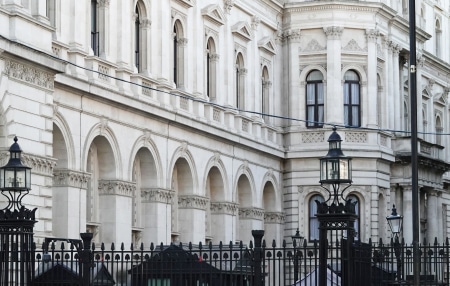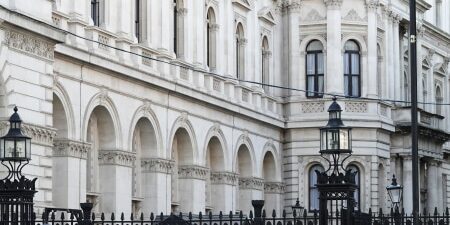
Chancellor Jeremy Hunt has confirmed a 2p reduction in National Insurance during his Budget speech to members of Parliament. This announcement comes as part of the final budget before the anticipated general election later this year.
The budget introduces a series of steps designed to assist families facing financial challenges, such as freezing fuel duty tax and continuing the Household Support Fund for an additional year.
Key statements made so far
1. £90 fee scrapped for Debt Relief Orders (DROs)
DROs are issued by the Insolvency Service to help people with low incomes who owe less than £30,000. These orders pause your debt payments and the accumulation of interest for one year. If your financial status remains the same after this period, your debts are cancelled. Previously, there was a £90 fee for this order, but this charge will no longer apply.
For more detailed information about DROs, visit our Debt Solutions page or alternatively, contact us to speak with an expert debt advisor.
2. Changes to Child Benefits
Families will now receive the full amount of child benefits if the parent who earns the most in the household makes up to £60,000 a year. Currently, this is only for households where the highest earner makes up to £50,000.
If the highest-earning parent in a household earns up to £80,000, they will still receive some child benefits, but not the full amount.
3. Expansion of Childcare Support
In 2023, the Government announced a significant expansion of childcare support in England by providing 30 hours a week of free childcare for 38 weeks a year, for eligible working parents of children aged nine months to three years which will remove barriers to work for over 400,000 parents.
The first stage of this offer is being rolled out in April 2024, when eligible working parents of two-year-olds will be entitled to 15 hours of childcare a week.
4. National Insurance cut
A 2p cut in National Insurance tax has been announced which means earners will now pay 8% of their taxable salary in National Insurance contributions, down from 12% last year.
The Government will also support the self-employed by cutting the main rate of Class 4 self-employed NICs to 6%. This will benefit over 2 million individuals, recognising the contribution of the self-employed and ensuring work pays for all. Taking this together with changes from Autumn Statement 2023, this will mean a 3p reduction in the main rate of Class 4 and the abolition of the requirement to pay Class 2 from April 2024.
5. Household Support Fund extension
Local councils will continue to receive money to help families cover costs for basic needs like electricity and water bills, housing costs, groceries, and other necessities. The fund was due to end on 31st March 2024, but has now been extended by six months, with an additional allocation of £500 million.
6. Repayment period for Universal Credit ‘Budgeting Advance’ loan increased
The repayment period for the Universal Credit ‘Budgeting Advance’ loan will now be increased to 24 months instead of the previous 12 months.
The amount you owe is gradually taken out of your regular Universal Credit payments, resulting in a slight decrease in each month until the loan is fully settled.
7. Fuel and alcohol duties frozen
Fuel duty is a tax which is used to fund various public expenditures, including the maintenance and construction of roads and infrastructure.
The Chancellor has announced this will not be increasing in April in line with inflation and the 5p litre cut implemented in March 2022 will stay for another 12 months.
Alcohol duty will be frozen until February 2025 which is said to benefit 38,000 pubs across the UK.
8. Tax Simplification
The Government is delivering further administrative reforms to make it easier for individuals and sole traders to meet their tax obligations by easing the payment of inheritance tax before probate or confirmation. From 1 April 2024, personal representatives of estates will no longer need to have sought commercial loans to pay inheritance tax before applying to obtain a “grant on credit” from HMRC.
They’re also removing confusion for Income Tax Self-Assessment customers by simplifying access to digital services for customers who want to pay in instalments in advance via a Budget Payment Plan, or in arrears via a Time to Pay Arrangement from September 2025.
9. Changes to underlying tax rules
Under the new regime, anyone who has been tax resident in the UK for more than four years will pay UK tax on foreign income and gains, as is the case for other UK tax residents. This is a much simpler and clearer test, with less scope for ambiguity than the current system. The new regime will no longer rely on the remittance basis, removing a source of complexity that incentivises individuals to keep income and gains offshore in the current system.
The Furnished Holiday Lettings (FHL) tax regime will be abolished from 6 April 2025, meaning short-term and long-term lets will be treated the same for tax purposes. Individuals with FHL and non-FHL properties will no longer need to calculate and report income separately.
10. Supporting people into work
Reforms to the Work Capability Assessment announced at Autumn Statement 2023 will reduce by 66% the net flow of people forecast over five years to be assessed to have no work requirements because of their health condition, ensuring that more individuals receive the right work and health support at the right time.
The Government is extending the duration of the Additional Jobcentre Support pilot across England and Scotland for a further 12 months. This pilot will continue to test how intensive support at specific points in a Universal Credit claimant’s journey can help support them into employment or higher earnings.
As part of the pilot extension, claimants will also be required to accept a new claimant commitment at 6, 13 and 26 weeks, agreeing to more work requirements or have their claim closed.
The Government is also providing additional funding to support the processing of disability benefit claims. The funding will increase system capacity to meet increased demand, enabling people to get the right support in a timely manner.
11. Vaping and Tobacco Duty
The Government will introduce a new duty on vaping products from 1 October 2026, with registrations for the duty opening from 1 April 2026. The rates will be £1.00 per 10ml for nicotine free liquids, £2.00 per 10ml on liquids that contain 0.1-10.9 mg nicotine per ml, and £3.00 per 10ml on liquids that contain 11mg or more per ml.
A 12-week consultation will be published on the policy design and technical details alongside the Spring Budget. The Government will also introduce a one-off tobacco duty increase of £2.00 per 100 cigarettes or 50 grams of tobacco from 1 October 2026.

